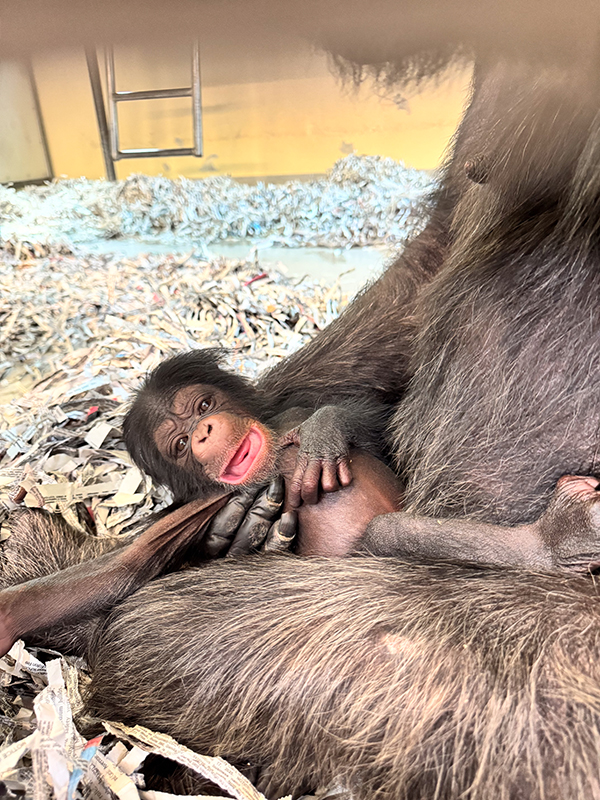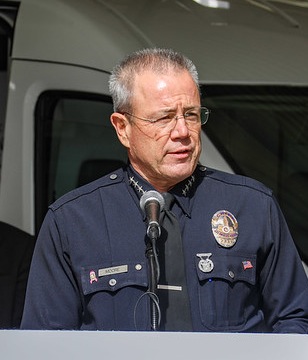Zoo welcomes first baby chimpanzees in 11 years

One of the two baby chimpanzees born this summer at the Los Angeles Zoo. It is the first time in 11 years the zoo has had baby chimpanzees.
Photo by Allison Robles/Los Angeles Zoo
Wave Wire Services
LOS ANGELES — The LA Zoo has announced the arrival of two new baby chimpanzees — the first chimpanzees born at the zoo in 11 years.
The first baby was born to 35-year-old female Yoshi and 26-year-old male Pu’iwa on Aug. 20. This is Yoshi’s third and Pu’iwa’s first offspring. The second baby was born on Sept. 9 to first-time mother 18-year-old female Vindi.
Both female infants have yet to be named, and animal caregivers report the babies are doing well and bonding with their parents.
“We’re thrilled to welcome the newest members of the troop,” Candace Sclimenti, curator of mammals for the zoo, said in a statement. “These are significant births for the zoo and both are welcome additions to the dynamic, multi-male, mixed-age troop which closely mirrors the species’ natural social structure in the wild.”
In the wild, chimpanzees live and travel in troops of 30 to 80 individuals led by a dominant male. Challenges to the dominant male are common and the group leader typically changes every three to five years.
Chimps live in a “fission-fusion” society, breaking into smaller temporary subgroups (fission) during the day. Smaller groups have a better opportunity to find sufficient food.
In the evening, they reunite (fusion) to build nests and sleep. Larger groups offer better protection against predators. At the L.A. Zoo, chimps practice their own fission-fusion, breaking into subgroups during the day to either lounge in the penthouse or head out into the main habitat to enjoy the waterfall. They reunite at night in their sleeping quarters.
The zoo has a long history caring for chimpanzees and has a cooperative breeding program, Chimpanzee Species Survival Plan, administered by the Association of Zoos and Aquariums.
The zoo’s chimpanzee habitat, Mahale Mountains, features built-in enrichment such as termite mounds and a waterfall, as well as four viewing areas for guests with opportunities for the chimps to choose to get out of the public view when desired. It also features an open-air “penthouse” adjacent to their indoor areas.
“Having known Yoshi and her family for nearly 30 years, and watching her grow up, it is so lovely to see her as a new mother again,” Megan Fox, senior animal keeper, said in a statement. “Yoshi is an experienced mom and this is Vindi’s first baby, but moms and infants are bonding and have been settling into the role of motherhood very well. It’s exciting to have these new additions to the troop, and they are adding a whole new social dynamic to the troop.”
Viewing availability for the chimps may vary in the first few weeks, according to zoo officials.
Chimpanzees are native to the forests and grassland in east, central and west Africa ranging from Senegal to Tanzania. The animals are classified as endangered by the International Union for Conservation of Nature.
Chimpanzees face a range of threats caused by human-wildlife conflict such as poaching, hunting and deforestation.





